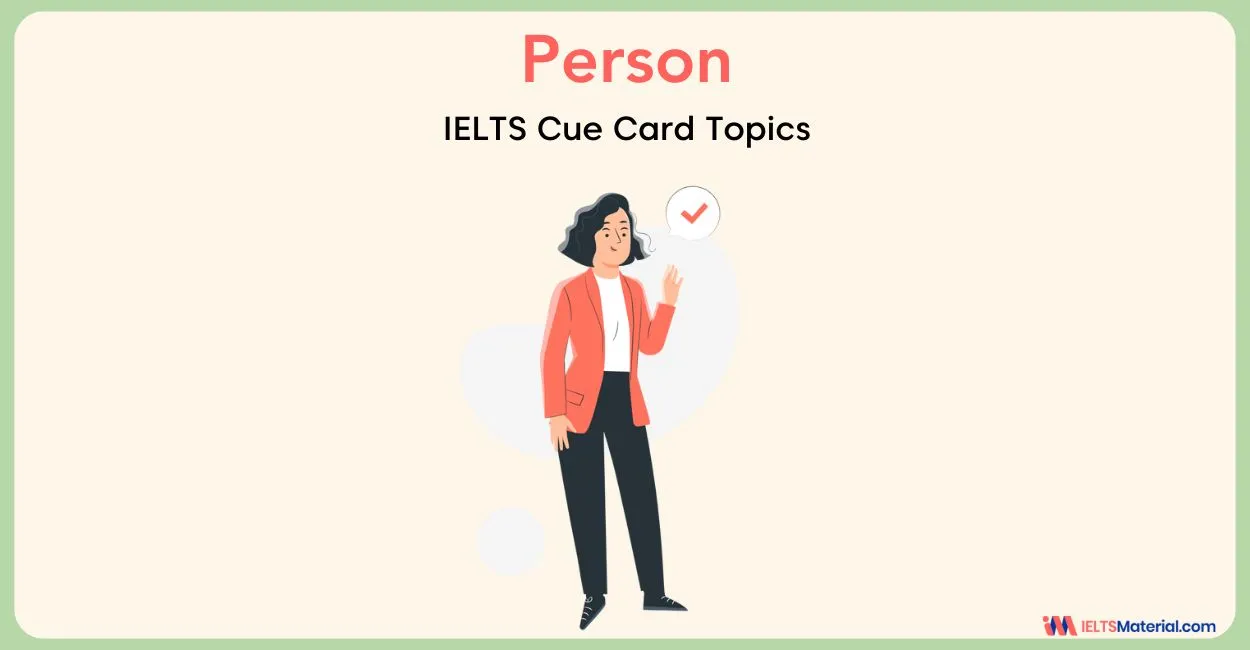Describe an Important Historical Event in Your Country IELTS Cue Card
Having trouble with the "Describe an Important Historical Event in Your Country" IELTS Cue Card? This guide provides expert sample answers, key vocabulary, and tips to help you deliver a well-structured response.
Table of Contents
- Describe an Important Historical Event in Your Country
- Describe an Important Historical Event in Your Country Sample Answer 1
- Describe an Important Historical Event in Your Country Sample Answer 2
- Describe an Important Historical Event in Your Country Sample Answer 3
- Describe an Important Historical Event in Your Country Vocabulary

Guide to Achieving Band 8+ on IELTS Speaking Cue Cards
This article contains the Describe an Important Historical Event in Your Country IELTS Cue Card Sample Answers. In the IELTS Speaking Part 2, you’ll have exactly one minute to prepare and speak on a specific topic. Reviewing sample answers can help you improve your ability to communicate clearly and effectively in the IELTS Speaking Test. This Cue Card allows you to share your thoughts about an important historical event in your country.
Before you begin, enhance your IELTS Speaking test skills and fluency using the guide provided below!
In IELTS Speaking, you should focus on one idea only and then expand that idea into a long meaningful sentence using IELTS Grammar patterns and IELTS Vocabulary. So, try practising this topic for Part 2 of the cue card for your IELTS Speaking and achieve a good IELTS Band Score!
Describe an Important Historical Event in Your Country
You should say:
- When did it happen?
- What happened?
- Who were the most important people involved?
Describe an Important Historical Event in Your Country Sample Answer 1
Since ancient times, India has had a rich history that contains all of the great events that have occurred in this fortunate region of the Asian continent. It includes incidents like the Ramayana and the Mahabharata. Many foreigners governed here for years, including Mogul emperors, Portuguese, French, and British. India was previously known as the Golden Bird, a wealthy country, but it lost most of its wealth and, most significantly, its freedom as it was dominated and conquered by numerous outsiders.
Indians fought for freedom for decades, and in 1947, India gained independence thanks to the efforts of numerous national heroes. However, several significant incidents that occurred throughout this conflict are memorable! One of the most significant historical events in India was the Jallianwala Bagh Massacre in 1919.
This was a breathtaking incident in Amritsar, India, on the day of a festival called “Baisakhi,” where Indians revolted against British authority; the difference was that this event was supposed to be peaceful for Indians. However, because British commander Dyer prohibited gatherings, the result was a tragic bloodbath.
On that day, at 4:30 p.m., women and children from all communities, including Sikhs, Hindus, and Muslims, peacefully gathered to protest British rule. As soon as this news reached General Reginald Dyer, he went to Jallianwala Bagh with his soldiers carrying armed weapons, and without warning, with all entrances blocked, he ordered the troops to attack people with loaded guns. This continued until the ammunition ran out. Approximately 1,000 people were murdered, many of them owing to the rush and stampede during the assembly.
Buckle up to crack IELTS Speaking cue cards like this effortlessly! Sign up for a FREE demo!
Describe an Important Historical Event in Your Country Sample Answer 2
Being one of the largest nations in Southeast Asia, India has its connection with an array of historical events. Right from being a slave to wars and separation, the history of this country is rich in memorable occurrences and aftermaths.
One of the significant historical events that took place in India was in 1947. The nation had acquired its independence from the British rulers and got separated from a region to form a new country known as Pakistan today.
The division took place solely on religious beliefs. During the time of independence, Hindus and Muslims got involved in grave disputes, which resulted in riots and mass killings. Soon enough, the matters were out of hand. As a result, there arose a necessity for two sovereign states; thus, the creation of India and Pakistan took place. While Hindus retained their livelihood in India, Muslims had to migrate to Pakistan. In the current times, Pakistan observes its Independence Day on August 14, and India celebrates the same on the consecutive day – August 15.
The people who were involved in this entire fiasco were Mahatma Gandhi, Jawaharlal Nehru, Khan Abdul Ghaffar Khan, Maulana Azad, Sarojini Naidu, and more.
Are you having difficulty speaking for IELTS Speaking Part 2 cue cards like this one? Book a FREE Demo!
Describe an Important Historical Event in Your Country Sample Answer 3
Being an Indian, and given the long history of the country, I think the most important historical event would definitely be Independence from the colonizers. India is well known for its rich culture, and diversity. India is really a melting pot of cultures, each region having its own practices and customs and celebrations as well. This inherent diversity prevailed centuries ago, well before the colonizers or even the Mughals. Throughout the history of the world, India made its mark on the map, being an important part of trade routes and supplying exotic spices and crops but that changed when the British arrived in India with the intent of colonizing our native land. After nearly two centuries of struggle, India finally gained Independence from the British in 1947. By then, the British had already made their impact on India. The most important people who were involved were the freedom fighters and leaders who took it upon themselves to motivate the nation and lead us to independence. The most prominent leaders of the movement were Jawaharlal Nehru, Mahatma Gandhi, Bal Gangadhar Tilak, Bhagat Singh, Sarojini Naidu, and Subash Chandra Bose. They were the leaders that moved millions to the fruition of freedom and they were the ones who struggled alongside the citizens for the movement. Some of them even shed their blood, sweat, and tears for the purpose. Today, we owe it all to them and the sacrifices they made. India’s history and culture are only enriched and strengthened due to the resilience they exhibited at the time. Now, we wear it as a badge of honor, to pay our respects to this monumental event in the history of our country.
Don't miss out on our top-rated Speaking book! Buy Now!
Describe an Important Historical Event in Your Country Vocabulary
Following are IELTS Vocabulary used in the above sample answers:
1. Inherent
- Meaning: existing in something as a permanent, essential, or characteristic attribute.
Example: Any form of mountaineering has its inherent dangers.
2. Prevailed
- Meaning: prove more powerful or superior.
Example: Their argument prevailed and they won the landmark case.
3. Exotic
- Meaning: Originating in or characteristic of a distant foreign country.
Example: We have a new shipment of exotic flowers.
4. Prominent
- Meaning: important; famous.
Example: She was a prominent member of the city council.
5. Resilience
- Meaning: the capacity to recover quickly from difficulties; toughness
Example: She succeeded because she was resilient.
In conclusion, discussing an important historical event in IELTS Speaking Part 2 helps showcase your fluency, coherence, and vocabulary range. Using descriptive language, precise historical terms, and well-structured storytelling can enhance your IELTS Band Score.
Related Cue Cards:
Here are some related cue cards that you can practice to improve your score:
- Describe an event when someone denied your request
- Describe an outdoor sport you played for the first time
- Describe a party you attended before
- Describe a music concert you have seen
Important Links:
Check out the following improtant links while preparing for the IELTS Speaking test:
- IELTS Speaking Criteria: What IELTS Examiners Look for in the Speaking Test?
- Recent IELTS Topics in IELTS Speaking Tests 2025
- How to Use Idioms in IELTS Speaking for a Higher Score?
- Linking words for IELTS Speaking Section
- The Best Phrases to Use in IELTS Speaking
- Recent IELTS Speaking Topics Part 2 & 3 with Model Answers

30 + Difficult IELTS Cue Card Topics with Answer pdf
Recent Articles

Haniya Yashfeen

Kasturika Samanta

Nehasri Ravishenbagam





Post your Comments